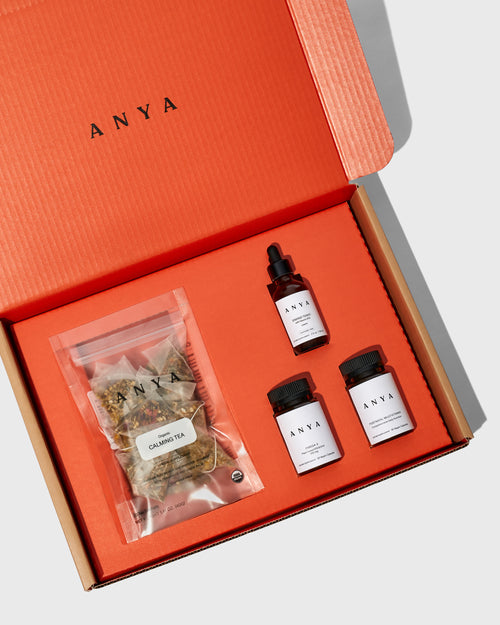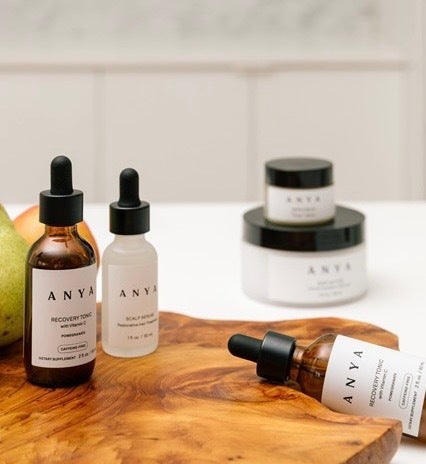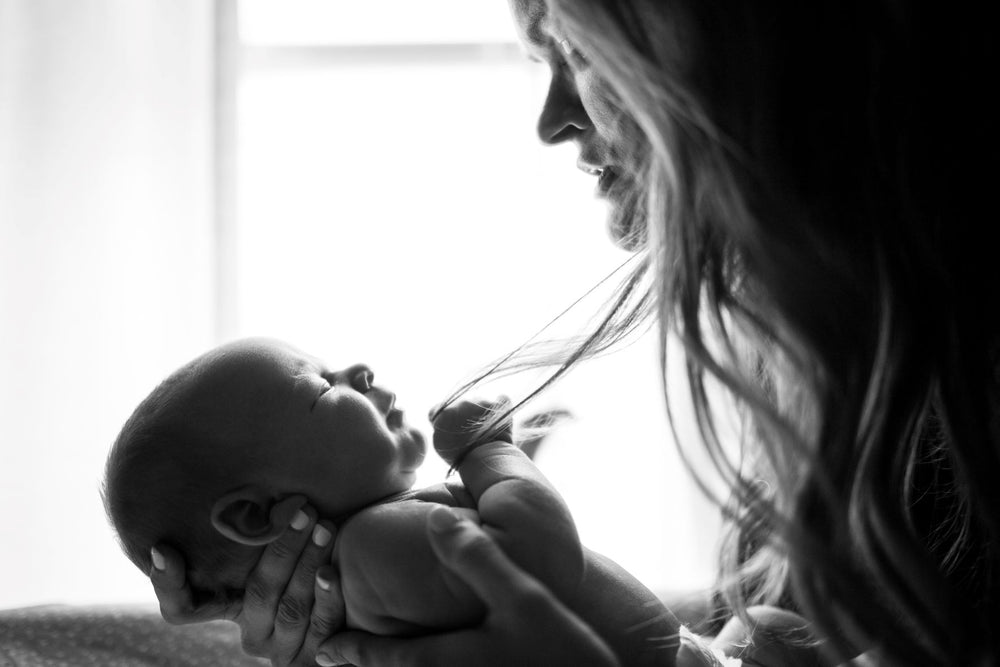Few women are prepared for the physical recovery from birth, but the mental recovery can be just as grueling. “There’s this idea that we should just be filled with bliss,” says Jessica Latack, PhD, a clinical psychologist who focuses on women’s mental health and a clinical assistant professor of psychology at Weill Cornell Medical College in New York City. “I think it’s hard to say ‘I’m unhappy’ or ‘I’m having intrusive, violent thoughts about my baby.’ Those are hard things to admit to oneself, let alone family, friends, or a provider.” The reality is that most women experience an emotional dip, known as the baby blues, after giving birth. But sometimes there’s something deeper going on—postpartum depression. Here, how to tell the difference and get help.
Baby Blues
The baby blues, also known as the postpartum blues, refer to mood fluctuations that occur soon after childbirth, typically appearing within the first two weeks postpartum. Symptoms may include anxiety, irritability, lack of concentration, trouble sleeping, loss of appetite, and sadness.
“It feels terrible, but the baby blues are normal. It’s the [rare] person who doesn’t get them,” says Catherine Birndorf, MD, a reproductive psychiatrist and cofounder of the Motherhood Center in New York City.
The condition is considered a normal physiological response, and it’s estimated that it affects up to 80 percent of new mothers. At the end of pregnancy, certain hormones, including estrogen and progesterone, are at their peak. Once you give birth, however, they plummet, which can send a shockwave through the system, explains Birndorf.
The good news is that a case of baby blues doesn’t last and usually abates on its own within the first two weeks. “You don’t need any major interventions or supportive measures to feel better. It’s when it doesn’t pass and it goes on and blossoms into something even more that you’re looking at a different [problem],” says Birndorf.
Bottom line: The baby blues—which can make you feel anxious, irritable, and sad—affect up to 80 percent of women and typically go away on their own in the first two weeks postpartum.
Postpartum Depression
In the majority of cases, the baby blues fade quickly, but for some—an estimated 15 percent—they develop into postpartum depression. Affecting approximately 10 percent of women after delivery, postpartum depression, which can also affect new fathers, is the most common complication of pregnancy, and it can occur any time within the first year postpartum, regardless of whether you had the blues. Its pathophysiology isn’t fully understood, but it’s thought to involve multiple biological and psychosocial factors, including the abrupt hormonal cascade that triggers the baby blues.
“The cause is multifactorial,” says Birndorf. “A lot of people feel better saying, ‘It’s not me; it’s my hormones,’ as if your hormones aren’t you. But it’s not your fault even though it’s happening within you. You didn’t cause it, hormonally or otherwise.”
The symptoms can be identical to those of the baby blues mentioned above, but they can also escalate. According to Latack, in addition to extending beyond the two-week mark, postpartum depression can be distinguished by its greater intensity. You may experience sharp mood swings, excessive crying, intense fatigue, panic, insomnia, difficulty bonding with your baby, feelings of hopelessness, and, in severe cases, thoughts of harming yourself or your baby. If you experience the latter, it’s important to call your doctor immediately.
Bottom line: Postpartum depression is more intense than the baby blues, and it lasts beyond the two-week postpartum mark. It can occur any time within the first year after childbirth.
Risk Factors
A significant contributor to your postpartum depression risk is whether you, or your family, has a history of psychiatric disorders. “Often, a person will say that they’re depressed, and then their mom says, ‘Oh, I had that.’ It’s really important to know your own history,” says Birndorf.
Additionally, past trauma—including during childbirth—or a stressful event during pregnancy raises your risk. “If you’re going through a difficult time financially, if you’re struggling in your relationship, if there’s a pandemic,” says Birndorf, “those are all adverse events that can contribute to issues postpartum.” In a recent study published in the Journal of Psychiatric Research, researchers found that about 48 percent of women with postpartum depression had experienced a stressful event during pregnancy.
What You Can Do About PPD
Share your feelings
“Be open with the support people in your life,” says Latack. “Talking to a partner or a friend can be like [hitting] the relief valve, letting out the pressure that’s inside.” Sharing is also critical because it can be difficult to judge for yourself what’s normal and what’s not. “A lot of the symptoms of depression are just a normal part of the postpartum period. Having less energy and not being able to concentrate is sort of par for the course,” says Latack. Your six-week postpartum appointments should help—at that time, your provider should screen you using a validated screening tool, like the Edinburgh Postnatal Depression Scale (EPDS), as recommended by the American College of Obstetricians and Gynecologists (ACOG), and refer you for treatment if necessary.
Find a professional
The first-line treatment for postpartum depression is therapy. According to Latack, the two modalities that have shown the best results are cognitive behavioral therapy (CBT), which focuses on thought patterns, and interpersonal psychotherapy (IPT), which focuses on relationships. If you have one or multiple risk factors, you might want to consider treatment during pregnancy: “There’s really good evidence that they’re [helpful] when used prophylactically to prevent an episode of depression or anxiety,” says Latack. Depending on your specific case, medication may also be administered—with extra care if you’re nursing.
Build a support system.
Although you’re rarely by yourself after having a child, the postpartum experience can feel lonely. “I’m an individual therapist myself, but I sometimes feel that in the postpartum, having a mom support group, even if it’s not a proper therapy group, is almost as potent, if not more potent, than a one-on-one conversation,” says Latack. A silver lining of the pandemic, says Birndorf, is that many groups shifted from in-person to virtual, including those at the Motherhood Center, which made finding community more convenient for new moms. “Having a cohort of women who get it, who see you, who can reflect back to you and say you’re not alone is so powerful,” says Birndorf.
Take care of your body.
“Sleep, proper nutrition, and exercise are massively helpful for mental health,” says Latack. The right foods might be able to as well: Evidence suggests that following an anti-inflammatory, Mediterranean diet high in leafy greens, nuts, olive oil, and fish can lower your risk of mental illness, and that micronutrient deficiencies, including B vitamins and magnesium, may contribute to postpartum depression. Sleep, though it may seem tough to come by with a newborn, is crucial, says Latack: “What we find is that if you can string together three or four good hours of sleep, that’s not a lot, but it’s actually really protective.” This may require conversations with your partner about taking on more responsibility, or with friends and family about helping with meals or errands so you can spend more time and energy on yourself.
Reset your nervous system.
As a complement to longer-term treatment, there are tools you can use to buoy yourself in the moment. When you’re feeling overwhelmed, the very basic act of breathing can be enough to ease your body back into a parasympathetic (i.e., rest) state. “When you get anxious, you tend to hyperventilate and take shallow breaths that tell the body you’re in an emergency,” says Latack. “Breathing deeply into your diaphragm [sends] a message to your brain that the crisis has passed and you can calm down.” Taking a shower and going for a walk—even just around the block—can also do the trick. “The change in temperature and light can be the thing that interrupts your thought process in the moment to help you feel [better],” says Latack.
Resources
An app to connect with other new mothers in your area
A site to find local, perinatally focused providers
Postpartum Support International
A site that will match you with a therapist (who takes insurance)
A network of therapists who offer affordable and reduced rates
Open Path Psychotherapy Collective
A CBT-inspired toolkit to supplement in-office exercises
A free, 24/7 mental health helpline from the Substance Abuse and Mental Health Services Administration
1-800-662-HELP






